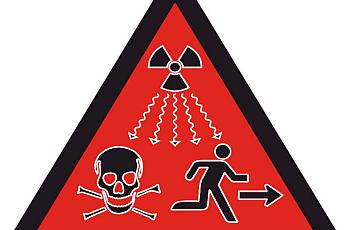
R. Jan Gurley
Physician-writer

Physician-writer
Dr. Jan Gurley, a board-certified internist physician, is the only Harvard Medical School graduate, ever, to have been awarded the coveted Shoney’s Ten-Step Pin for documented excellence in waitressing. Her health/science background covers the vast territory from sub-cell systems, to human studies, to the captivating science of seeing patients one-on-one. Her training includes basic science research (graduating magna cum laude from Harvard), then a residency at UCSF in Internal Medicine, as well as a Robert Wood Johnson Fellowship (Stanford/UCSF Joint Program) in epidemiology, public health and public policy, followed by work as an administrator of large divisions of the San Francisco DPH where she currently sees patients in a clinic for the homeless. Doc Gurley’s health writing has appeared in Salon, The San Francisco Chronicle, and the Chronicle Sunday magazine, along with regular pieces in BlogHer, KevinMD and as one of SFGate's City Brights. Jezebel has called her "indispensible." Her research has appeared in academic publications including the New England Journal of Medicine. You can read more about her at www.docgurley.com.

<p>Every ER has patients like "Sam." The staff call them "frequent fliers" because they patch them up and discharge them, only to watch them return an hour or a day or a week later with another problem. How much should the health care system spend to help someone who won't help himself? </p> <p> </p>

<p>San Francisco's City Clinic has been dishing out frank talk about sex for 100 years. The shocking thing is not how much things have changed, but how much they haven't.</p>

<p>How many people leave our prisons with no fixed destination? If only for public safety reasons, you might assume the correctional system would want to know. You would be wrong.</p>

<p>In California’s largest cities, one senses that the number of homeless people continues to grow, whatever the interventions to prevent it. But some of the more commonly cited reasons for that growth don't explain the whole story.</p>

<p>We all live in fear of that moment of diagnosis. You know it's bad, and your brain flees, backing away into a deep, silent corner. Only the words <em>incurable</em> and <em>cancer</em> slither into the darkness where your thoughts are hiding. So what happens that night if you're homeless?</p>

<p>Low trace levels of radioactive iodine-131 have been found in <a href="http://m.sfgate.com/sfchron/db_41167/contentdetail.htm;jsessionid=BD82E… in Massachusetts</a>. Now, as Doc Gurley r

<p>Once the Great <a href="Potassium">http://www.bt.cdc.gov/radiation/ki.asp">Potassium Iodide</a> panic began, most Americans received messages saying “Don't Panic” on Twitter, on Facebook, the Internet. And that was the responsible media thing to do, right? Here's what may be wrong with that approach, neurologically speaking.</p>
<p>Doctor-blogger Jan Gurley introduces her new blog on covering health at the margins of society, muses about why she blogs, and how her doctor and journalist roles sometimes conflict.</p>
<p>You might think that spending ten years on the street, two of them at 6th and Mission, might mean that a person is a hopeless case. If you're thinking that way, even secretly in your mind, as you pass people huddled under urine-soaked gray-felted blankets, then now's the time for you to meet
<p style="margin: 0.0px 0.0px 0.0px 0.0px; font: 12.0px Helvetica;"><span style="letter-spacing: 0.0px;">“Epigenetics is now the hottest thing in biosciences.” </span></p> <p style="margin: 0.0px 0.0px 0.0px 0.0px; font: 12.0px Helvetica; min-height: 14.0px;"><span style="letter-spacing: 0.0px;"> </span></p>